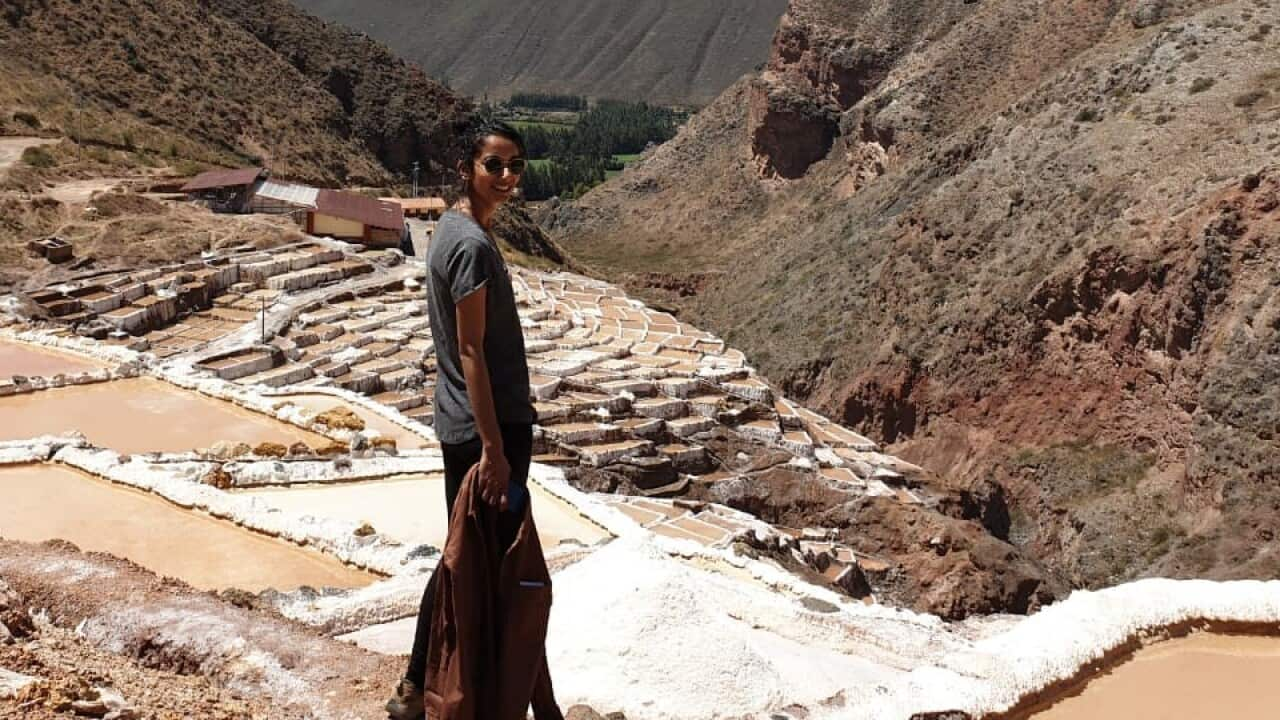Stranded Australians have called on the federal government to remove the hotel quarantine policy and adopt a more efficient process for returning travellers to isolate.
The Morrison government has gradually increased Australia’s hotel quarantine cap, which will allow more Australians stranded overseas to return.
But many people stuck abroad have called for better alternatives, urging the government to take a leaf out of other nation's books and implement monitored at-home quarantining.
Matt Warren, an Australian who has been stranded with his wife and two children since the pandemic began, told SBS News the latest cap increase felt like “just another PR stunt and photo opp”.
“Why not do like Taiwan, Abu Dhabi and other countries, who allow home quarantine with GPS wristbands or SIM cards for returning citizens?” he said. “Unlike botched and expensive hotel quarantine, it keeps a record if people sneak out.
“They need to devise and resource a quarantine system which doesn’t take six to 12 months of Australians stuck on airline waitlists and going into debt to get home,” he added. “Other countries devised a system, so why can’t Australia?”
Stefanie Szabo, a corporate lawyer from Queensland who is currently stuck in Dubai, agreed.
“Australia needs a robust and sensible quarantine regime that takes us into 2021 and beyond - it is unprecedented times and other countries have approached quarantine in different ways over the past seven months,” she told SBS News.
“Why can't the Australian government take learnings from this and design a regime that can manage the capacity of returning Australians but also keep our communities safe?
“Returning Australians want themselves and their loved ones to be safe too because they are also a part of those communities.” The Victorian government has said for some returned travellers to scale back its trouble-plagued hotel quarantine program.
The Victorian government has said for some returned travellers to scale back its trouble-plagued hotel quarantine program.

Victorian Premier Daniel Andrews has said eletronic monitoring devices is one of several options being explored by the state's justice department. Source: AAP
The state's premier, Daniel Andrews, on Tuesday said it is one of several options being explored by the Justice Department.
"I simply said that's worth having a look at, let's have a look at that," Mr Andrews said.
"If we can get people safely into their own home but have a high degree of confidence that they're not spreading the virus - and we can actually monitor their health status at the same time - that seems to me a fairly common sense thing to do."
What does quarantine look like around the world?
In Taiwan, mandatory hotel quarantine only applies for incoming travellers living with people who have underlying and pre-existing health conditions.
Everyone else is instructed to self-quarantine for 14 days inside their own home.
At the same time, people self-quarantining can apply to attend funerals and visit critically ill relatives, provided they have had no COVID-19 symptoms and have recorded a negative test at least two days before they wish to go out.
Canada employs a similar policy, with returning travellers required to self-isolate for 14 days at home and watch for symptoms, while avoiding contact with anyone outside the home.
Hong Kong residents arriving home are subject to mandatory 14-day quarantine, unless they are given special exemptions.
Whether they can quarantine at home or in a designated hotel depends on the country they arrive from.
Hong Kong residents returning from the United States, for example, are required to spend 14 days in a hotel and must have a hotel reservation prior to boarding a flight to Hong Kong, due to the high number of cases in the US. Singapore has lifted restrictions on visitors from several countries including Brunei, Vietnam, New Zealand and Australia, with the exception of Victoria.
Singapore has lifted restrictions on visitors from several countries including Brunei, Vietnam, New Zealand and Australia, with the exception of Victoria.

On March 18, Hong Kong authorities began ordering all arrivals from overseas to wear electronic bracelets. Source: AFP
Singaporeans who return home from one of these countries will be issued a Stay Home Notice, and made to quarantine at home for seven days.
An electronic monitoring device must be worn to ensure the stay-at-home provisions are adhered to.
In Denmark, countries are listed as either “open” or “banned”.
Australia is among a list of “safe” countries - alongside Canada, Japan, New Zealand, South Korea and most of the European Union - where travellers are allowed to enter.
The United Kingdom employs a similar scheme. Anyone entering the country on its “travel corridor” list - which is made up of more than 40 countries and territories, including Australia - are not required to self-isolate for 14 days upon arrival.
The list is constantly under review and is subject to change based on rising and falling cases of the virus within each country.
The Australian government is beginning to ease its incoming travel restrictions.
It recently enabled the trans-Tasman bubble, by which New Zealanders can come to New South Wales, the Northern Territory and South Australia without being subject to mandatory quarantine.
The Australian government is including Japan, South Korea and Singapore on reopening travel as coronavirus infections ease, Prime Minister Scott Morrison announced on 10 October.
An announcement on a further push to expand the intake of stranded Australians trying to get home . The meeting was postponed due to "technical problems" that had earlier prevented Mr Morrison returning to Sydney.
People in Australia must stay at least 1.5 metres away from others. Check your jurisdiction's restrictions on gathering limits.
If you are experiencing cold or flu symptoms, stay home and arrange a test by calling your doctor or contact the Coronavirus Health Information Hotline on 1800 020 080. News and information is available in 63 languages at .












